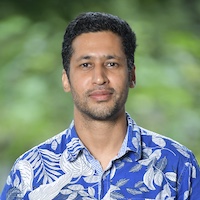The speaker will be Prof. M. Yunus Rafiq, who will present on "Becoming of Cancer: Biomedical Legibility and the Invisibility of Alternative Therapies in Urban Tanzania" at 11:15 AM on Thursday, October 19th in Room W934. Click here to RSVP for in-person attendance. You may also choose to join us via Zoom at https://nyu.zoom.us/j/97139255020.
This study presents and explores the findings of the second round of qualitative data collection under the "Semantic Landscape of Cancer" project in Bagamoyo, Tanzania. Initiated in 2021, this multidisciplinary project aimed to understand how Tanzanians employ and conceptualize cancer. While the first round of the study focused on ordinary citizens and their understanding of cancer terminology, the second round of data collection shifted its focus to understanding discourses on cancer among various stakeholders, including clinicians, traditional healers, and faith healers. Our findings suggest that cancer is closely associated with and becomes legible through contact with the biomedical system. Moreover, the visibility of cancer through interactions with formal health centers such as hospitals is not commensurate with access to timely treatment and care. We argue that the visibility of cancer resurrects anxieties and frustrations associated with the existing state of health services while pushing to the margins of traditional and faith practitioners' local epistemologies and healing practices.
Speaker Bio

M. Yunus Rafiq is an Assistant Professor of Anthropology, NYU Shanghai; Global Network Assistant Professor, NYU. His research and practice centers on cultural anthropology and ethnographic studies. Prior to joining NYU Shanghai, in 2017 Rafiq performed an ethnographic study in Dar es Salaam, Tanzania with the Ifakara Health Institute on Wazazi Nipendeni--text messages for a maternal and child health campaign implemented by Tanzania Ministry of Health and Social Welfare and funded by the Presidents Emergency for Aids Relief (PEPFAR). From 2015 to 2016, Rafiq performed another ethnographic study in Tanga, Tanzania on the community's reception of a maternal and child health project with the Transparency for Development and ASH Center, Kennedy School of Governance. Rafiq is also served as a Research Affiliate at the Department of Sociology and Anthropology, University of Dar es Salaam, Tanzania between 2014 and 2016. Prof. Rafiq is an affiliate of the Center for Global Health Equity.

